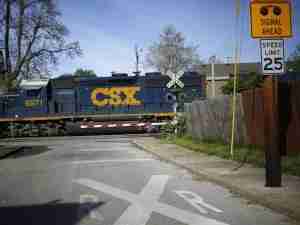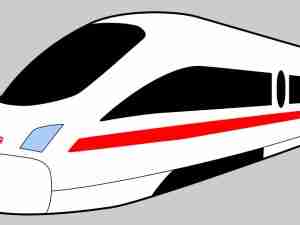Canada's Asia-Pacific Gateway and Corridor Initiative has been an important factor in this success. CN has strongly supported the initiative through significant investments in infrastructure.
Mongeau said: "To date, CN has invested roughly C$600 million in projects that specifically relate to the Asia-Pacific Gateway Corridor - everything from terminals and equipment, to sidings and signals."
He noted, however, that investment is not enough. "We need innovation and collaboration throughout the supply chain. That is the journey CN is on."
Mongeau said CN's precision railroading model has been a key driver in the Company's pursuit of efficiency and its ability to serve the Pacific Gateway effectively. Now CN is taking that model to the next level by focusing on supply chain initiatives and service excellence in a way that will help its customers grow and flow greater volumes of traffic through the gateway.
CN recently introduced a new supply chain approach to managing the flow of coal from mines to ships at west coast terminals. This helps CN improve service to its coal customers and grow their volumes to Asian markets. An end-to-end view of the coal supply chain, along with a focus on closer customer collaboration, improves coal logistics, which in turn allows coal producers to maximize sale opportunities.
CN has also introduced a plan that has dramatically increased the reliability of its grain service. CN applied precision scheduling to grain car deliveries, setting up operating protocols so that cars arrive at specific elevators at scheduled times on scheduled days every week. This plan has resulted in a fundamental improvement in system reliability, which translates into predictable service to the grain industry. An increase in scheduled reliability means a better export program for Canadian farmers.
Mongeau said CN has also reached out to improve the flows of goods through all of Canada's major ports. Since April of this year, CN has signed a series of supply chain collaboration agreements with major east coast and west coast ports, as well as level of service agreements with some of their key terminal operators.
CN's supply chain collaboration agreement with Port Metro Vancouver, for example, sets the framework for the port, CN and port stakeholders to develop mechanisms to measure and monitor the performance of each participant at the port against established benchmarks. It also establishes processes to communicate proactively on service-related matters and to resolve any disputes between CN, the port and port supply chain participants on a commercial basis.
Mongeau cautioned that CN's customer-focused initiatives will only succeed in a commercial environment that drives market solutions, encourages innovation and builds increased supply chain collaboration.
"A robust rail regulatory regime already exists in Canada today. We believe that increased rail regulation would undermine the positive momentum of our supply chain collaboration initiatives, stifle innovation and hurt the rail industry's ability to invest in service and infrastructure improvements.
"Railways are crucial to the Canadian economy and its competitiveness in global markets. And that economy - and the Vancouver Pacific Gateway - cannot afford the risk of additional, unwarranted regulation."






